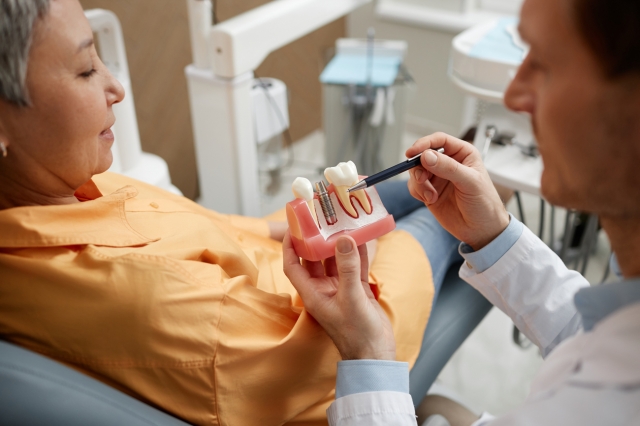Dental implant surgery is an effective way to replace missing teeth and restore your smile to its former glory. The procedure has a high success rate and can provide a durable, long-term solution for tooth loss. While the thought of undergoing dental surgery might be daunting, understanding the process can alleviate some anxieties. Below, we delve into what you can expect during each stage of the journey - from the initial surgery to the long-term benefits.
Managing Pain and Discomfort During Recovery

After dental implant surgery, patients may experience pain and discomfort, which can be managed with over-the-counter pain medication. Swelling and bruising are common but should subside after a few days. Ice packs and head elevation can help minimize swelling. During the first two days of recovery, it is advisable to stick to soft foods, avoid hot beverages and hard, chewy or sticky foods, and refrain from smoking.
Proper care during the healing phase is crucial, including not disturbing the surgical site with tongue or fingers, avoiding strenuous activities that could lead to bleeding, and getting plenty of rest. If unusual symptoms or persistent pain occur, it is essential to contact your dental surgeon. Prompt addressing of any issues is crucial for the best outcome for your dental implants.
Understanding the Dental Implant Surgery Procedure
Dental implant surgery involves several stages, beginning with preparing the jawbone, possibly including bone grafting. An oral surgeon then places a titanium post as the tooth root, done under local anesthesia for comfort. Afterward, the bone heals around the implant in osseointegration, a crucial process lasting months.
An abutment is added to support the new tooth, followed by attaching a custom-made crown that matches your natural teeth. For those seeking reliable dental implant services, San Diego dental implans offer advanced technology and skilled care, ensuring a smoother patient experience throughout the procedure's phases.
Follow-up Visits and Monitoring Implant Success
Dental implants require regular follow-up visits to ensure proper fusion and healing of the implants. Initially, these visits may be frequent to track progress and make necessary adjustments to the treatment plan. As time passes, they become less frequent but remain essential for implant long-term viability. The dental team monitors implant stability, prosthetic integrity, and surrounding tissue health. Patients can ask questions and dentists reinforce good oral hygiene practices.
Professional cleaning is performed to prevent plaque buildup and detect any signs of wear and tear. Regular check-ups are a partnership between the patient and dentist, ensuring the investment lasts for years. The commitment to regular check-ups is a partnership that ensures the investment lasts for years to come.
Oral Hygiene and Care for Dental Implants

Maintaining good oral hygiene is crucial for the longevity of dental implants. After surgery, keep the mouth clean to prevent infections. Your dentist will provide instructions on how to care for the surgical site, such as gentle brushing or using a special mouth rinse. After healing and implant integration, routine dental care is similar to natural teeth, including brushing, flossing, and dental check-ups.
Special interdental brushes are recommended for cleaning around implants, abutments, and crowns. Implants are not susceptible to cavities but can suffer from peri-implant diseases if neglected. Regular dental checkups are essential for tracking implant and surrounding tissue condition, allowing dentists to clean difficult-to-reach areas and detect potential issues early.
Long-term Outcomes and Benefits of Dental Implants
Dental implants are a significant investment in oral health, offering long-term benefits such as improved function, appearance, and comfort. They can last for decades when properly maintained, providing the same function and appearance as natural teeth. They also prevent long-term bone loss, preserving the jawbone and facial structure.
Dental implants also positively impact overall well-being and quality of life, increasing self-confidence and allowing for a wide range of foods. They are a one-time procedure with a success rate of over 95%, making them a reliable and durable solution to tooth loss. Despite initial healing and adjustment, many patients report the benefits of improved function, appearance, and comfort, making dental implants a preferable long-term solution.
Overall, while dental implant surgery can seem intimidating, the procedure has a high success rate and provides immense benefits. With proper care and maintenance, dental implants can offer a permanent solution to tooth loss, giving patients a functional, healthy smile for many years to come.






